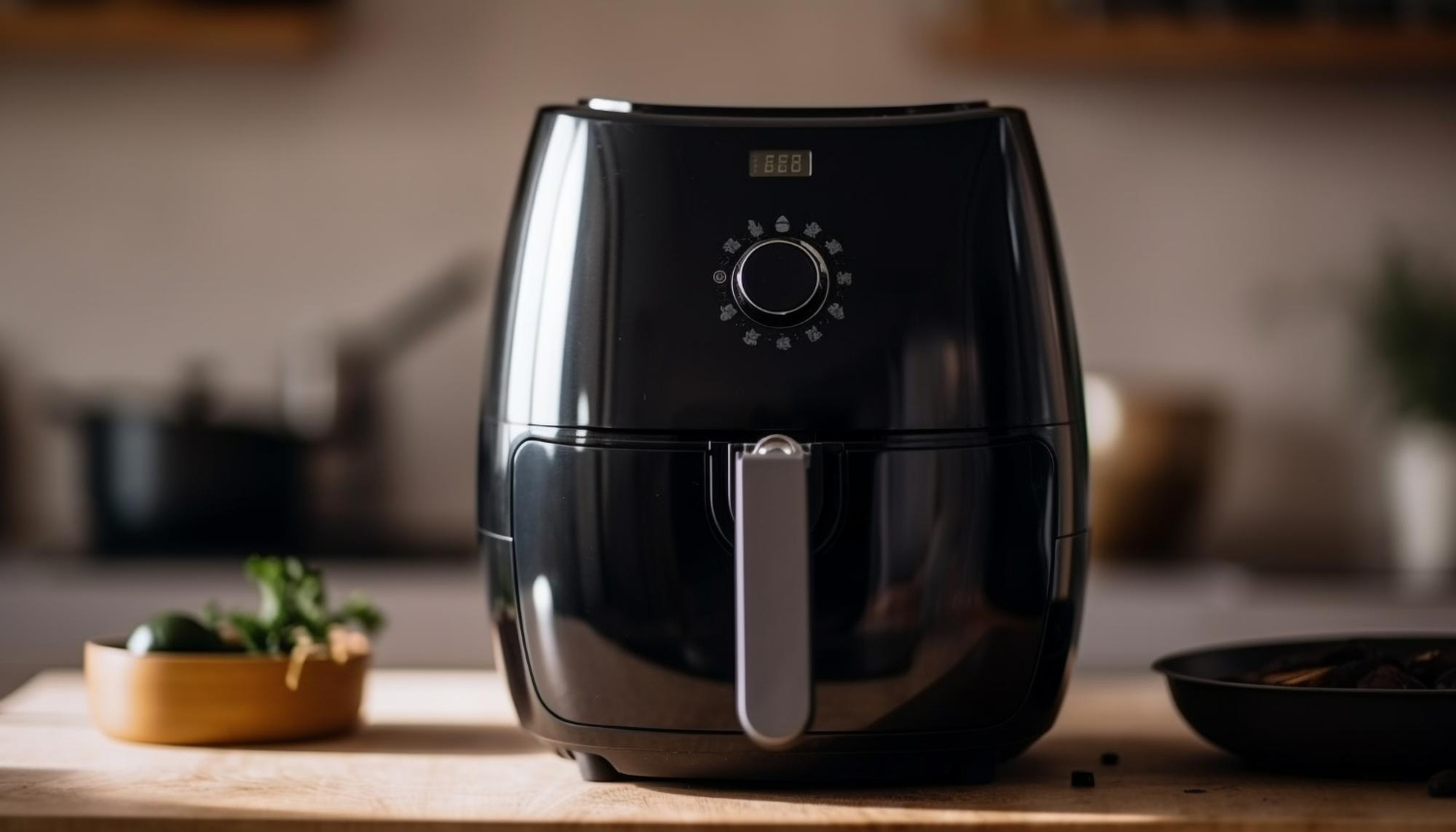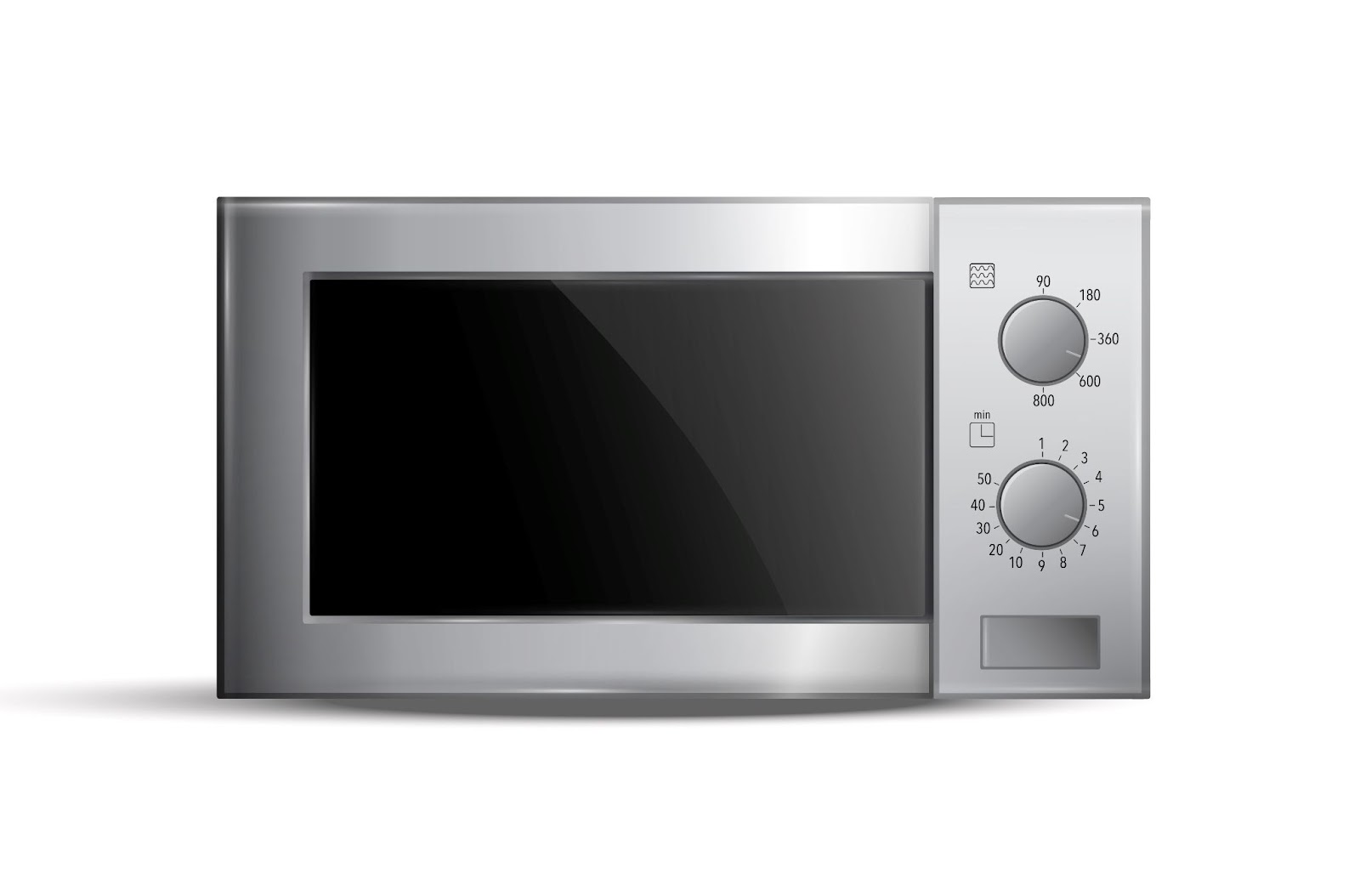Out of the many modern kitchen appliances, two stand out when it comes to cooking convenience: the air fryer and the microwave.
These appliances have revolutionized how we prepare our meals, offering fast and efficient cooking methods.
But when it comes to air fryer vs microwave, which one is truly the better option?
Let’s delve into the comparison of air fryers vs microwaves, exploring their differences, functionalities, and overall cooking prowess.
What is an Air Fryer?

An air fryer is a revolutionary kitchen appliance that utilizes hot air circulation to cook food, mimicking the effect of deep frying but without the need for excessive oil.
Air fryers employ the principle of hot air circulation to cook food. They feature a heating element and a powerful fan that evenly distributes the hot air around the food, resulting in crispy exteriors while retaining moisture on the inside.
Air fryers come in various sizes and designs to fulfill the needs of different households.
What is a Microwave Oven?

A microwave oven, commonly known as a microwave, is a kitchen appliance that cooks food by emitting electromagnetic waves.
Microwaves use electromagnetic waves (microwaves) to generate heat within the food itself. The waves penetrate the food, causing water molecules to vibrate and generate heat, thereby cooking the food from within.
Microwaves are renowned for their rapid cooking time, making them a popular choice for reheating and defrosting food.
Air Fryer vs Microwave: Cooking Methods
The Maillard Reaction: Flavorful Crusts
Air fryers excel at creating a golden and crispy texture on food through the Maillard reaction. This reaction occurs when high heat interacts with amino acids and sugars in the food, enhancing its taste and appearance.
Microwaves, however, do not produce the Maillard reaction, resulting in food that may lack the appealing texture and flavor.
Retaining Nutrients: Health Benefits
Air fryers are known for their ability to cook with little to no oil, making them a healthier option for those conscious of their dietary choices. This cooking method helps preserve essential nutrients in the food.
Microwaves, too, retain nutrients effectively, especially when compared to traditional stovetop cooking.
Cooking Time: Efficiency and Convenience
Air fryers generally have longer cooking times for some dishes compared to microwaves.
However, they are quicker and more efficient than conventional ovens, making them a favorable choice for many modern households.
Advantages of Air Fryers
- Healthier Cooking with Less Oil: One of the main advantages of air fryers is their ability to create crispy dishes with significantly less oil, reducing calorie intake.
- Versatile Cooking Options: Air fryers offer a wide range of cooking options that include frying, roasting, baking, and grilling. This versatility allows users to experiment with various recipes and cuisines.
- Easy to Clean and Maintain: Many parts of an air fryer are dishwasher safe, and the non-stick surfaces are easy to clean.
Limitations of Air Fryers
- Cooking Capacity and Size: Air fryers may have limited cooking capacities, making them less suitable for larger families or gatherings. Users need to consider the appliance’s size and their cooking needs before making a purchase.
- Longer Cooking Time for Some Dishes: Certain dishes, especially those that require deep frying or slow cooking, might take longer in an air fryer than in other cooking appliances.
Advantages of Microwaves
- Rapid Cooking and Heating: Microwaves are unbeatable when it comes to speed. They can quickly reheat leftovers and cook ready-to-eat meals in a matter of minutes.
- Preserving Nutrients in Certain Foods: Microwaves, due to their fast cooking process, help retain more nutrients in certain foods compared to other conventional cooking methods.
- Defrosting Made Easy: Microwaves are excellent for defrosting frozen food items, saving time and effort in the kitchen.
Limitations of Microwaves
- Uneven Heating and Texture: Microwaves may result in uneven heating, leaving some areas of the food overcooked while others remain undercooked.
- Limited Browning and Crisping: Microwaves are not ideal for achieving crispy textures or browning on food surfaces.
- Dependency on Microwave-Safe Utensils: Cooking in microwaves requires specific microwave-safe containers, which can limit cooking options.
Can Air Fryers Be Used as Microwaves?
Air fryers and microwaves have distinct purposes, but some functions may overlap. Air fryers can be used to reheat food and achieve certain microwave-like results.
With slight modifications and experimentation, some microwave recipes can be adapted for use in an air fryer and vice versa.
However, they are not interchangeable. If you need to heat something quickly or reheat leftovers, the microwave is the better option. If you want to achieve a crispy and fried-like texture, an air fryer is the way to go.
Each appliance has its strengths and is designed for specific cooking purposes.
Can an Air Fryer Replace a Microwave?
Whether an air fryer can replace a microwave depends on personal cooking preferences and the types of dishes one regularly prepares.
Many households find both appliances useful, using them for different cooking tasks and obtaining the best results overall.
Can I Use an Air Fryer to Reheat Food?
Using an air fryer to reheat food can help retain its crispiness and texture, which might be lost when using a microwave.
It is also quicker than using an oven, and you won’t have to deal with sogginess that can occur with some foods when reheated in a microwave.
Remember that not all foods are suitable for reheating in an air fryer. Soups, stews, and other liquid-based dishes may not work well in this appliance. For such items, a stovetop or microwave may be more appropriate.
Microwave vs Air Fryer: Which is Safer?
Both microwave ovens and air fryers are generally considered safe when used properly and according to the manufacturer’s instructions.
However, there are some differences in how they work and their potential safety considerations:
Radiation vs. Convection
Microwave ovens use electromagnetic radiation (microwaves) to heat food by causing water molecules to vibrate and generate heat.
Air fryers, on the other hand, use convection technology by circulating hot air around the food to cook it.
In terms of safety, both methods are considered safe, as long as the appliance is in good working condition and used correctly.
Potential Burns
Microwaves can cause burns if not handled properly, as the food can become very hot. When removing items from a microwave, it is essential to use oven mitts or other protective tools to prevent burns.
With air fryers, since the heat is contained within the appliance, there is generally less risk of direct contact with hot surfaces.
Child Safety
Both appliances should be kept out of reach of young children to prevent accidents.
Microwaves usually have safety locks to prevent unauthorized use, while some air fryers also offer child lock features.
Potential for Fire Hazard
While both appliances have safety mechanisms to prevent fires, it is essential to keep them clean and free of any food debris or grease buildup.
Microwaves, in particular, can pose a fire risk if metallic objects or non-microwave-safe containers are used.
Electrical Safety
Both microwave ovens and air fryers are electrical appliances, so it is crucial to use them with proper electrical outlets and avoid using extension cords that might not handle the power requirements.
FAQs
1. Can I use metal pans in an air fryer like I can in a microwave?
No, using metal pans in an air fryer is not recommended as it can cause damage to the non-stick coating inside the appliance and interfere with the cooking process.
2. Do air-fried foods taste as good as deep-fried foods?
Air-fried foods can come close to the taste and texture of deep-fried foods, but the results may vary depending on the dish and recipe.
3. Can you cook frozen food directly in an air fryer and microwave?
Yes, both appliances can cook frozen food directly, but it is essential to follow the specific cooking guidelines for the best results.
4. Are there any safety concerns while using an air fryer or microwave?
Users should exercise caution when using both appliances to avoid burns, follow safety instructions, and avoid using non-microwave-safe containers in microwaves.
5. Can I use an air fryer to reheat food?
Yes, an air fryer can be used to reheat food, producing crispier results compared to a microwave.
6. Can air fryers be used as microwaves?
While air fryers can handle some microwave tasks, they cannot replace microwaves entirely.
7. What is the difference between air fryers and microwaves?
The main difference lies in their cooking mechanisms: air fryers use hot air, while microwaves use electromagnetic waves.
8. Are air-fried foods healthier than microwave-cooked dishes?
Air-fried foods are often considered healthier due to the reduced use of oil.
To Sum Up
In conclusion, the outcome regarding air fryer vs microwave ultimately depends on your cooking style, preferences, and kitchen requirements.
While air fryers offer healthier cooking and versatile options with crisp results, microwaves excel in rapid heating and defrosting tasks.
To achieve the best of both worlds, some households may choose to have both appliances in their kitchen arsenal.
Comment below what appliance you prefer: Air fryers or microwaves?